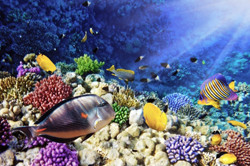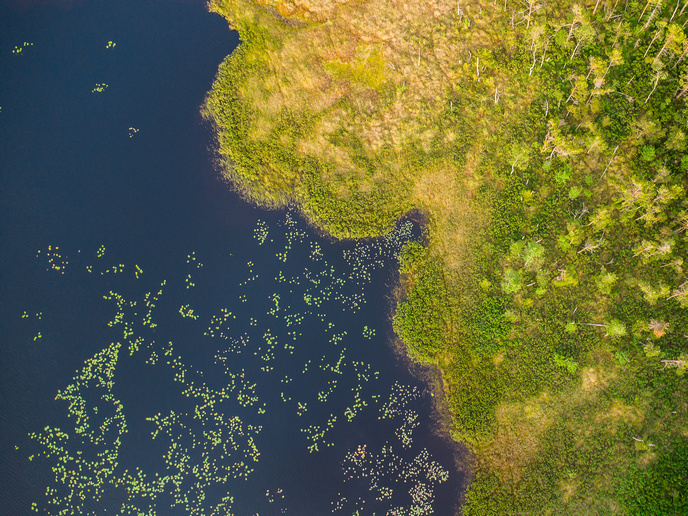Fish diversity patterns in coral reefs
Analysis of geographical patterns in biodiversity helps researchers to understand the ecological and evolutionary processes that shape life on Earth. This information is also crucial for prioritising conservation activities and strategies. Scientific knowledge of how natural diversity of species varies within the marine environment was previously limited. This is due to the inherent logistical constraints and difficulties involved in working in an unfamiliar environment. There was, therefore, a clear need for this challenge to be addressed. The 'Diversity and community assembly in Caribbean reef fish' (REEF FISH DIVERSITY) project investigated biodiversity in coral reef in the tropical western Atlantic. The aim was to determine how marine biodiversity varies across large areas of coral reefs, one of the most diverse and threatened ecosystems in the world. Researchers used the world's largest marine sightings database to map species richness (i.e. total number of species present) for coral reef fish communities across the Caribbean and tropical western Atlantic. Two key measures of biological diversity were also measured: functional and phylogenetic diversity. Functional diversity refers to those elements that influence how the ecosystem operates, which together with species richness affects the biogeochemical processes of ecosystems. Phylogenetic diversity is concerned with the evolutionary development of organisms. Environmental data, including climate data and information on human activities, were examined and tested in detail for links to reef fish diversity. In addition, cutting-edge diversity and assembly analysis was carried out. The purpose was to gain a clearer understanding of the processes behind the patterns identified in assemblages of these reef fish. Reef fish provide useful indicators of overall patterns in coral reef biodiversity. Therefore, REEF FISH DIVERSITY conducted a truly comprehensive analysis of coral reefs to a level far above that previously applied to marine ecosystems. The project outcomes will play a vital role in improving scientists' understanding of how natural diversity varies within the marine environment. Data from the project will help scientists and policymakers to develop strategies for maintaining coral reef ecosystems and the biodiversity that they support.







